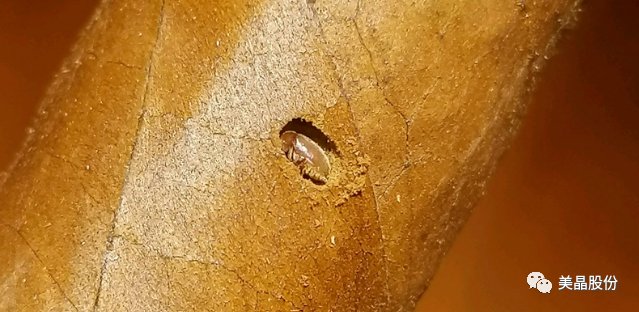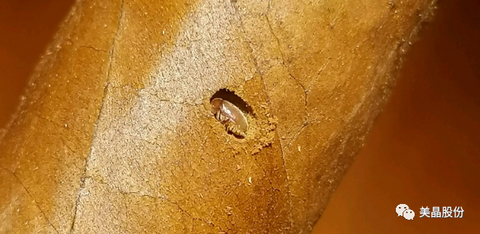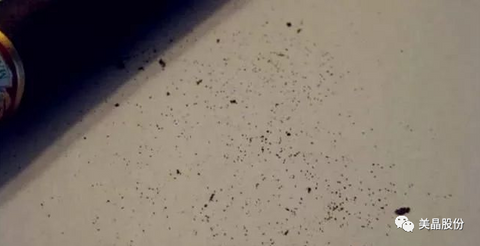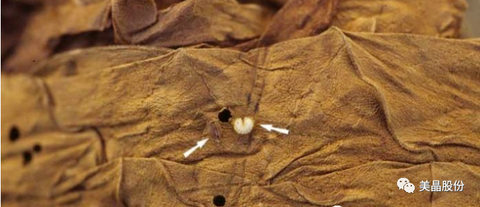
Cigars attacked by cigar bugs, a cigar smoker's nightmare
Share
A few days ago, a cigar smoker sent me a video and said to me, "I regret not listening to your advice that good cigars must be accompanied by good cabinets; so much so that today my cigars have become a delicious and sumptuous buffet for cigar bugs.
Some cigar smokers often jokingly say, "I am more concerned about aging my cigars than I am about raising my children".
Although this is a bit exaggerated, it does speak to the difficulty of raising eggplants. In addition to the strict temperature and humidity requirements, one must always be on guard against cigar bugs. Once a cigar is infested with bugs, the cigar will be like the heart of the cigar smoker and all the efforts will be wasted.
Cigar bugs are the "killers" of cigar care. By the time you find them, they will have done their damage to your current cigar, but if you don't control them, they will destroy all the cigars in your inventory.
How can you tell if your cigars have been attacked by bugs?
There are three main things to look for.
(1) Check the surface of the cigar for holes the size of a pinhole to a green pea;

(2) Tap the open end of the cigar on a piece of white paper and check for black, fine sandy powder (this is cigar worm excrement).
Similarly, if you tap the hole on the surface of the cigar face down on a piece of paper, a black, gritty powder will come out.

(3) The cigar has not been stored for a long time at 26 degrees Celsius or above.
If two of the three points above are true, you should be careful and there is a high probability that the cigar is infested.
How to deal with cigar infested cigars?
If you do not want to throw away your cigars, you should give them a "freezing treatment" and prevent cross-infection as follows.
Step (1): Put the infested cigars into a sealed bag together with the other cigars in the box (which may be infected) and close the bag (this step is to lock in the moisture, you can also wrap the cigars with plastic wrap and put them into the sealed bag to be more secure).
Step (2): Place the sealed cigars in the refrigerator freezer and let them rest for 24 hours. (This step is to prevent the wrapper from bursting due to drastic temperature changes)
Step (3): Place the sealed cigars in the freezer and let them rest for 72 hours. (Freezing kills eggs, larvae, pupae and adult insects)
Step (4): Thaw the sealed cigars in the refrigerator freezer and let them rest for 24 hours. (As before, to prevent the wrapper from bursting due to drastic temperature changes)

Step (5): Remove the cigars from the freezer, remove the sealed bag and put them back into the same environment where they were kept before, and adjust the temperature and humidity for resting (the previous box should be replaced or cleaned thoroughly).
Prevention is more important than cure in the battle against cigar bugs!
One female cigar bug can lay between 10 and 100 eggs, which means that if one bug is found, there are probably hundreds of cigar bugs ready to strike for a delicious "buffet".
What can I do to prevent cigar bugs from happening?
Cigar bugs are a tropical pest in terms of their habits, and their eggs only hatch easily when they are exposed to high temperatures for a long time. Therefore, if you keep the temperature of your cigars below the temperature required for the eggs to hatch, you will be able to avoid the infestation to the greatest extent possible.
Some cigar smokers often jokingly say, "I am more concerned about aging my cigars than I am about raising my children".
Although this is a bit exaggerated, it does speak to the difficulty of raising eggplants. In addition to the strict temperature and humidity requirements, one must always be on guard against cigar bugs. Once a cigar is infested with bugs, the cigar will be like the heart of the cigar smoker and all the efforts will be wasted.
Cigar bugs are the "killers" of cigar care. By the time you find them, they will have done their damage to your current cigar, but if you don't control them, they will destroy all the cigars in your inventory.
How can you tell if your cigars have been attacked by bugs?
There are three main things to look for.
(1) Check the surface of the cigar for holes the size of a pinhole to a green pea;

(2) Tap the open end of the cigar on a piece of white paper and check for black, fine sandy powder (this is cigar worm excrement).
Similarly, if you tap the hole on the surface of the cigar face down on a piece of paper, a black, gritty powder will come out.

(3) The cigar has not been stored for a long time at 26 degrees Celsius or above.
If two of the three points above are true, you should be careful and there is a high probability that the cigar is infested.
How to deal with cigar infested cigars?
If you do not want to throw away your cigars, you should give them a "freezing treatment" and prevent cross-infection as follows.
Step (1): Put the infested cigars into a sealed bag together with the other cigars in the box (which may be infected) and close the bag (this step is to lock in the moisture, you can also wrap the cigars with plastic wrap and put them into the sealed bag to be more secure).
Step (2): Place the sealed cigars in the refrigerator freezer and let them rest for 24 hours. (This step is to prevent the wrapper from bursting due to drastic temperature changes)
Step (3): Place the sealed cigars in the freezer and let them rest for 72 hours. (Freezing kills eggs, larvae, pupae and adult insects)
Step (4): Thaw the sealed cigars in the refrigerator freezer and let them rest for 24 hours. (As before, to prevent the wrapper from bursting due to drastic temperature changes)

Step (5): Remove the cigars from the freezer, remove the sealed bag and put them back into the same environment where they were kept before, and adjust the temperature and humidity for resting (the previous box should be replaced or cleaned thoroughly).
Prevention is more important than cure in the battle against cigar bugs!
One female cigar bug can lay between 10 and 100 eggs, which means that if one bug is found, there are probably hundreds of cigar bugs ready to strike for a delicious "buffet".
What can I do to prevent cigar bugs from happening?
Cigar bugs are a tropical pest in terms of their habits, and their eggs only hatch easily when they are exposed to high temperatures for a long time. Therefore, if you keep the temperature of your cigars below the temperature required for the eggs to hatch, you will be able to avoid the infestation to the greatest extent possible.
